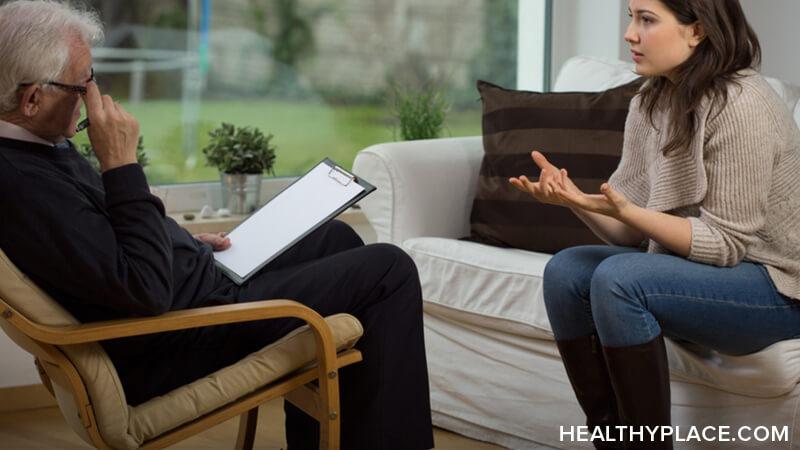Antipsychotics Are My 1st Line of Defense, Therapy Is My 2nd

I consider antipsychotic medication the most critical piece of my treatment. However, no matter how well the drugs work, I'm still human and have other things going on. On my best days, when I have very few symptoms of schizophrenia, I am still in relationships with others. I still have memories. I have habits. I have patterns of communicating, traumatic events that I've experienced, and a connection to myself. For example, I'm living with the grief of my dad moving into a nursing home and the aftermath of a global pandemic. For me, antipsychotics and therapy work together.
Therapy Might Be the Answer to My Anxiety
I consider my antipsychotics my lifeline, but taking them doesn't magically clear up all the issues I have with life. That is why I got on a waitlist six months ago for therapy. I recently met my new therapist, and although I have as many issues to sort out as the next person, my priority in therapy right now is to get to the root cause of my anxiety. I feel like anxiety is possible for my therapist to address because generalized anxiety disorder (GAD) is a relatively new diagnosis for me.
Since I haven't lived with it for more than five or six years, something in my life changed for my brain and system to respond by having anxiety attacks. I have written here about everything I've tried to lessen an anxiety attack once I'm experiencing one, for example, deep breathing, prayer/meditation, listening to bird songs on any of my devices, tapping, etc. Those things don't work for me once I am experiencing extreme anxiety. Also, they don't uncover the reasons for the attacks in the first place.
I have some ideas of the traumatic events that contributed to developing anxiety attacks, but I'm not skilled enough to address them independently. I need a therapist to help me talk about those events and then give me exercises to reframe or make them less powerful in my body and mind. If I can address the beginning of the trauma and the things that have piled on since then, maybe I'll have one less struggle to manage, live with, and treat.
Getting to the source of my anxiety and eliminating attacks would make my life so much easier, and I think it is worth the money, time, and homework to see if it's successful. If it is, I can move on to improving communication, addressing grief, and possibly silencing my inner critic and many other human challenges.
In the following video, I discuss my hope of normalizing therapy for anyone looking to understand or improve certain aspects of their lives.
APA Reference
Chamaa, R.
(2023, July 26). Antipsychotics Are My 1st Line of Defense, Therapy Is My 2nd, HealthyPlace. Retrieved
on 2026, January 10 from https://www.healthyplace.com/blogs/creativeschizophrenia/2023/7/antipsychotics-are-my-1st-line-of-defense-therapy-is-my-2nd
Author: Rebecca Chamaa
Hello Rebecca. Really trying to respect your privacy, and with full acknowledgement that you are not a doctor, and that meds can affect people differently, but could you share which antipsychotic you take? You mentioned needing more sleep, a common side effect. But you dont look overweight, which is another common problem. Our family member has put on 80 pounds since starting these meds, but we certainly dont want to abandon it, since it otherwise works very well. And yes, we discuss this regularly with the doctor, but options seem limited. Maybe we missed something? Thank you!
Hi Kathy and Rose,
Thank you so much for your comment. We don't discuss which medications we take because they work differently for everyone. I will say weight gain is a common problem, and I also struggle with that. I work with my doctor on diet and exercise, and I know that people can do all the "right" things and find it difficult to lose weight. I'm sorry your family member is going through this. I'm happy you are committed to treatment, especially since it is working!
